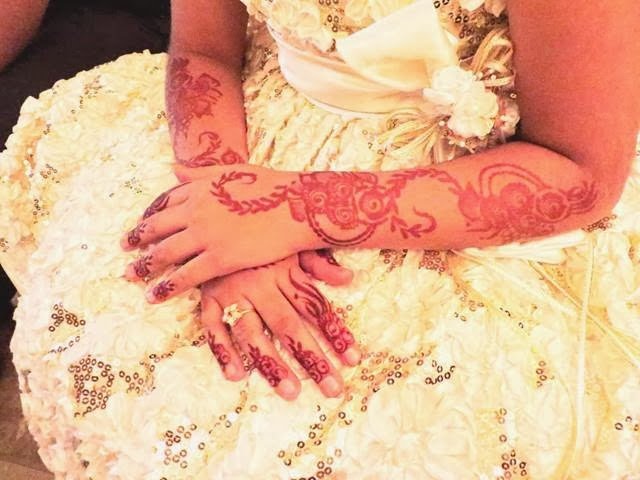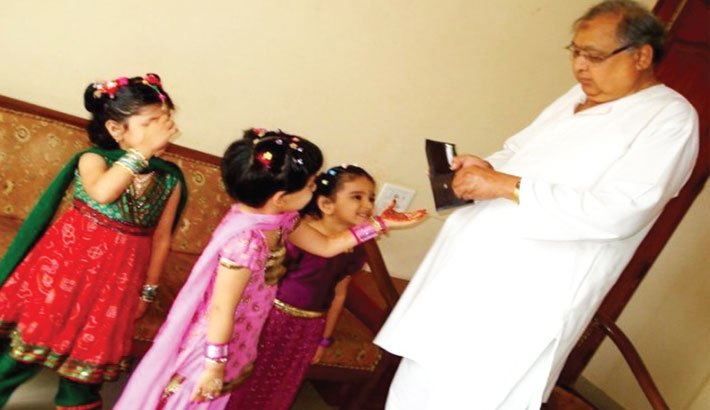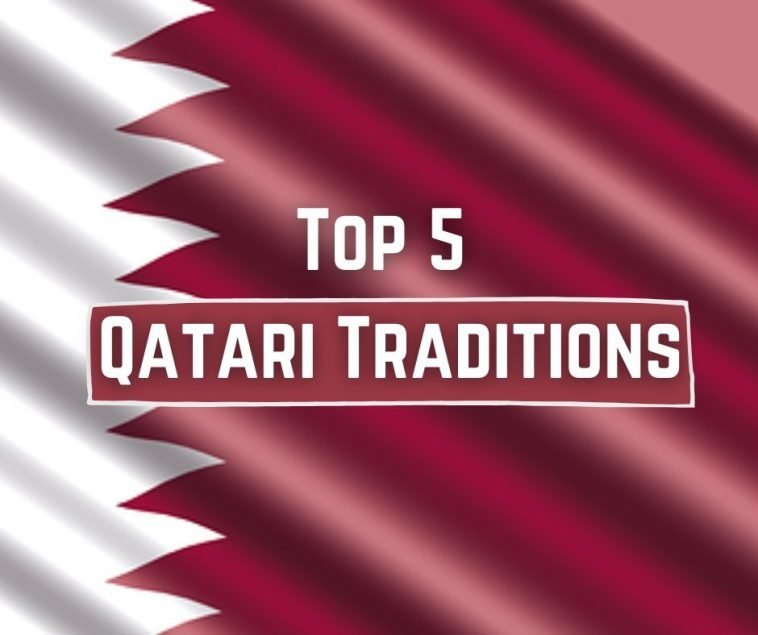Qatar’s traditions are strongly affected by the Bedouin culture with an importances on hospitality and network. Every nation has its own special appeal that is regularly reflected in their culture and traditions. In this case, these traditions get old and die away. It’s important to maintain them since they are in your identity. These little ceremonies and things are the magnificence of your locale and your legacy would be lost without it.
It’s fine to see that Qataris have kept their traditions for long and still worth them today.
Regardless of whether you have lived in Qatar for a year or new to the nation, you probably won’t have heard about Qatari traditions. It’s time to discuss these wonderful traditions.
Qatari Tradition in Qatar
1. Al Nafla
Al Nafla, celebrated on the 14th of Shaaban, is a special occasion in Qatar that serves as a reminder and preparation for the upcoming blessed month of Ramadan. It is a time when families and relatives come together to engage in acts of worship, gather essential food items, and plan meals in anticipation of Ramadan.
During Al Nafla, there is a strong emphasis on communal unity and generosity. Families prepare traditional dishes such as Harees and Machboos, along with delectable desserts like Mahalabiya and Umm Ali. These dishes are not only enjoyed within the family but also shared with neighbors and the less fortunate as gifts, fostering a sense of solidarity and community spirit.
The act of gathering and preparing food together holds great significance in this tradition. It strengthens family bonds and cultivates a spirit of togetherness, ensuring that everyone is prepared to observe the fasting month of Ramadan in a collective and harmonious manner.
Additionally, Al Nafla serves as a reminder of the rewards and blessings that await during Ramadan. It is a time to reflect on the spiritual significance of the upcoming month and to mentally and physically prepare for the period of fasting and increased devotion.
Overall, Al Nafla is a cherished tradition in Qatar that marks the beginning of the spiritual journey of Ramadan. It is a time of anticipation, gratitude, and community, where families come together, exchange gifts, and engage in acts of kindness and generosity to usher in the blessings of the holy month.
2. Melcha

Melcha is a significant wedding celebration in Qatar that takes place after the signing of the marriage contract between the groom and the bride. It is a traditional festivity where the groom formally requests the hand of the bride from her father, brothers, or the senior male figure in the family.
The Melcha ceremony typically occurs in the evening or at night, serving as a precursor to the more elaborate wedding gatherings and functions that follow. It holds cultural and symbolic importance, signifying the official union between the bride and groom and the acceptance of the groom into the bride’s family.
During Melcha, the groom, accompanied by his close family members and friends, visits the bride’s family home. The senior male figure in the bride’s family welcomes the groom and formally grants him permission to marry the bride. This gesture represents the union of two families and the beginning of a new chapter in the lives of the bride and groom.
Melcha is often marked by joyous celebrations, traditional music, and cultural rituals. It provides an opportunity for both families to come together, exchange blessings, and strengthen familial bonds. It is also a time for the groom’s family to present gifts and tokens of appreciation to the bride’s family as a gesture of respect and gratitude.
The ceremony itself varies in its specific traditions and customs, reflecting the cultural diversity within Qatar. It is a cherished event that highlights the significance of family, unity, and the joining of two individuals in marriage.
Overall, Melcha is a special occasion that symbolizes the official request for the bride’s hand and the beginning of the wedding festivities. It is a time of celebration, joy, and the coming together of families to bless and support the newlyweds as they embark on their journey together.
3. Ramadan Cannon

In Qatar, a traditional practice that has been followed for many years is the firing of a gun at sunset to mark the end of the fast (Iftar time) during Ramadan. This tradition is still observed in various locations across the country, including Katara, Souq Waqif, Souq Al Wakrah, and the State Grand Mosque.
In the past, the gun used to be fired near the Qatar Post Head Office near Corniche, which was a well-known spot for locals. However, over time, the tradition has expanded to different venues, allowing more people to witness the gun being fired and partake in the celebratory moment.
During Ramadan, individuals and families gather at these designated places, often bringing snacks and drinks with them, to enjoy the experience of hearing the gun being fired. It has become a social event where people come together to celebrate the breaking of the fast and embrace the communal spirit of Ramadan.
The firing of the gun serves as a signal for those observing the fast to break their fast and enjoy the evening meal. It is also a symbolic reminder for people in neighboring towns and areas to break their fast as well.
This tradition holds cultural significance in Qatar and is a reflection of the deep-rooted traditions and customs associated with Ramadan. It showcases the unity and shared experiences of the community during this holy month.
The firing of the gun to mark the end of the fast is a cherished tradition in Qatar, attracting both locals and visitors alike. It adds a unique and memorable element to the Ramadan experience, bringing people together in celebration and reflection.
4. Majlis

n Qatari culture, the term “Majlis” holds great importance as it represents a space or gathering where people come together for various social activities. The word “Majlis” originates from Arabic and translates to “a position of sitting,” emphasizing its significance as a place for individuals to sit and engage in conversation.
Traditionally, a Majlis is a separate area or room that is connected to the main house, often with its own entrance. It is specifically designated for hosting guests and facilitating social interactions. This separate space allows for privacy and convenience, ensuring that social gatherings do not disrupt the daily activities of the household.
The design and decor of a Majlis typically reflect the cultural heritage and personal taste of the host. It is common to find comfortable seating arrangements such as cushions and carpets, low tables for serving refreshments, and ornate decorations that showcase traditional Qatari craftsmanship.
5. Eidiya

During Eid, which marks the conclusion of Ramadan, it is a customary practice in Qatari culture for children to engage in a joyful tradition known as “Eidiya.” On this special day, children from the neighborhood go from house to house, singing traditional folk songs to celebrate Eid. In return for their performances, the older members of each household give them money or sweets as a token of appreciation. This gesture is called “Eidiya.”
However, as individuals grow older and start earning their own income, they are no longer eligible to receive Eidiya. Instead, they become responsible for giving it to younger members of the family and neighborhood. This transition can be a bittersweet experience, as the financial inflow that was once received as a child diminishes. In anticipation of this tradition, elders of the family
These five Qatari traditions showcase the rich cultural heritage and community spirit that define Qatar. From the warm hospitality of Majlis gatherings to the bustling Souq Waqif and the vibrant celebrations of Qatar National Day and Ramadan, these traditions provide a glimpse into the values and traditions that make Qatar unique. Al Ardha, the traditional sword dance, further highlights Qatar’s commitment to preserving its heritage and passing it on to future generations. By embracing and honoring these traditions, Qatar continues to foster a strong sense of identity and unity among its people.
Please Subscribe Us to get updated with Qatar News, Saudi News, Kuwait News, Health News, UAE News, Iqama, Visa, Jobs, Banking and More.




Nice post ! Thanks for, posting on my blog mate! I shall email you some time. I did not know that.